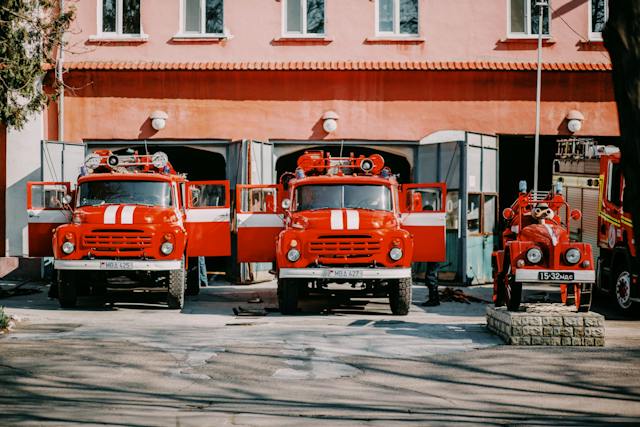
Do you know what is on the inside of a fire truck? and you can call them in case of any emergency? Here, we will tell you everything you should know.
In the year 23 BC, the Caesar Augustus of Rome organized the world’s first firefighting force to protect the city and its people. If you know your Roman history, then you may remember that this early attempt was not very successful. But the potential was clear, and we’d continue to refine the art of firefighting for the next 2,000-odd years.
What’s on the Inside of a Fire Truck?
Now, if you look inside fire truck inventories, you’ll see a whole cache of equipment to help firefighters save lives and protect property. To gain a higher appreciation of everything that goes into firefighting, check out this rundown on the key equipment that our first responders rely on.
Fire Trucks vs Fire Engines
While you might hear the two terms used interchangeably, a fire truck and a fire engine are not the same thing.
Fire engines carry water supplies and pumps that can be used to fight small fires. That’s where the term “engine” comes from. It originally referred to the pump mechanism built into the vehicle.
Hence, there’s a lot less room inside a fire engine, and fire engine equipment is limited to the running of the water pump. Think of hoses and nozzles.
A fire truck carries a firefighter team and most of their equipment. It’s one part transportation, and one part a toolbox on wheels.
Key Fire Truck Equipment
Fire trucks are divided into two main areas.
The front compartment, where the driver sits, mostly contains administrative tools. These might include a laptop to coordinate the dispatch team, radio communication systems, reference manuals, gas and water monitors, flashlights, and thermal imaging cameras for locating people and hot spots.
The control system that handles the ladders, cameras, and other machinery attached to the truck will also be in this compartment.
The rear compartment holds a lot of the equipment you probably imagine when you think of firefighters. This includes forced-entry tools like axes and Halligan bars, fire extinguishers, hoses and nozzles, and smoke extractor fans.
This is all in addition to the gear that firefighters carry on their person, like their fire-retardant suits and personal oxygen supplies.
Keeping Track of What’s Inside Fire Truck Inventories
Firefighting doesn’t allow a lot of room for error. Missing a single piece of gear in a crucial moment can spell disaster for a firefighter, a fire victim, or both. Keeping track of all of their equipment and making sure that it’s in good working order is not optional.
So how do teams make sure all their gear is in good repair and ready to go at a moment’s notice?
An important part of every firefighter’s routine is inspection. Daily, weekly, and monthly inspections of critical equipment help ensure that first responders have the tools they need when they need them.
To help track all of this gear, teams will use a digital fire truck inspection checklist. This software helps keep accurate records of a team’s equipment and reduces the risk of incomplete inspections.
Fire Trucks Come Prepared to Meet the Challenge
Looking inside fire truck inventories can seem daunting. Sure, there are the hoses, helmets, and axes that you would expect. But there are also smoke ejectors, thermal imaging cameras, and all the necessary safety gear to protect firefighters on the job.
It’s a lot to keep track of, which is why first responders carry out frequent inspections and use cutting-edge inventory software to catalog their gear. And this is only one instance of how technology keeps the best and bravest of us safe. Check out our other posts to see how emerging technologies can make us happier, healthier, and safer.






